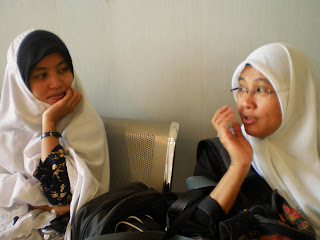
Man by nature is fallible. Correcting mistakes is a part of education. Besides delivering the messages of God, teaching and explaining the same to the people and guiding them in the right path, the Prophet took it as his duty to correct their mistakes too.
The Prophet adopted a number of methods to correct people but he never embarrassed anybody who made a mistake. Justifying that making mistakes was a part of human nature the Prophet announced “Every son of Adam makes mistakes and the best of those who make mistakes are those who repent” (Tirmidhi, Hadith Encyclopaedia CD, Ver.2.1, 2000, Hadith No. 2423) Hence he was of the opinion that the basic aim was to reform and not to punish.
The Prophet used to correct the mistakes by quoting a religious rule or principle. He was also very particular to clear the misconception lest the people might be led to commit mistakes. Once three people met the wives of the Prophet enquiring the way the Prophet used to pray. They thought that to get their sins forgiven as that of the Prophet, they had to indulge in extreme forms of worship. One of them said that he would pray every night; the other one expressed his desire to fast for the rest of his life without a break and the third one made a vow that he would never marry.
When the Prophet came to know about them he announced generally that he was the one who feared God more than anyone else, but still he said that he used to fast and break the fast, pray and take rest and got married too. Thus he removed their misconceptions leading to extremes, which was against his ways in life. (Bukhari, Hadith Encyclopaedia CD, Ver.2.1, 2000, Hadith No. 5063) At the same time he did not embarrass them by referring to their names but provided an opportunity for to correct each himself voluntarily. At the same time he made his point clear to all those around.
Repeatedly reminding people to fear God and His punishment was another method adopted by the Prophet to prevent people from doing mistakes. Abu Mas’ood al-Ansari reported that he was beating his slave with a whip when he heard a voice calling him to listen. It was the Messenger of God who rebuked him saying that God had more power over him than what he had over his servant. He immediately freed his slave and never beat any slave after that. (Tirmidhi, Hadith Encyclopaedia CD, Ver.2.1, 2000, Hadith No. 1871)
He used to be compassionate to people who committed mistakes unwittingly or due to their weakness. He never hastened to tell someone that he was wrong, used to keep his cool even when some mistakes were done before his very eyes. A Bedouin started urinating in the mosque and the people were about to stop him angrily. The Prophet stopped them, allowed the Bedouin to finish and then called him to tell that it was not the place to urinate. Then he arranged to pour a bucket of water to clean the place.
But the Prophet used to take any mistake in connection with the basic belief very seriously. Sometimes he had shunned the people who had done some serious mistakes, even boycotted them. Ka’b ibn Malik and two of his friends abstained from the campaign of Tabuk. The Prophet ascertained that they had no valid excuse and forbade the Muslims from speaking to them. This was in effect for fifty days. The Prophet used to be very upset if somebody told a lie especially in his presence.
In some special cases the Prophet talked to the people bluntly and openly, especially to his close companions. When the Prophet came to know that Abu Dharr shouted at another person, insulting his mother because she was a non-Arab, he rebuked Abu Dharr openly telling that he still had something of the “Period of Ignorance” in him. (“The Period of Ignorance” is the era of Arab paganism that preceded the revelation of Islam.) He also made people understand that he would not accept flimsy excuses for mistakes committed.



0 comments:
Post a Comment